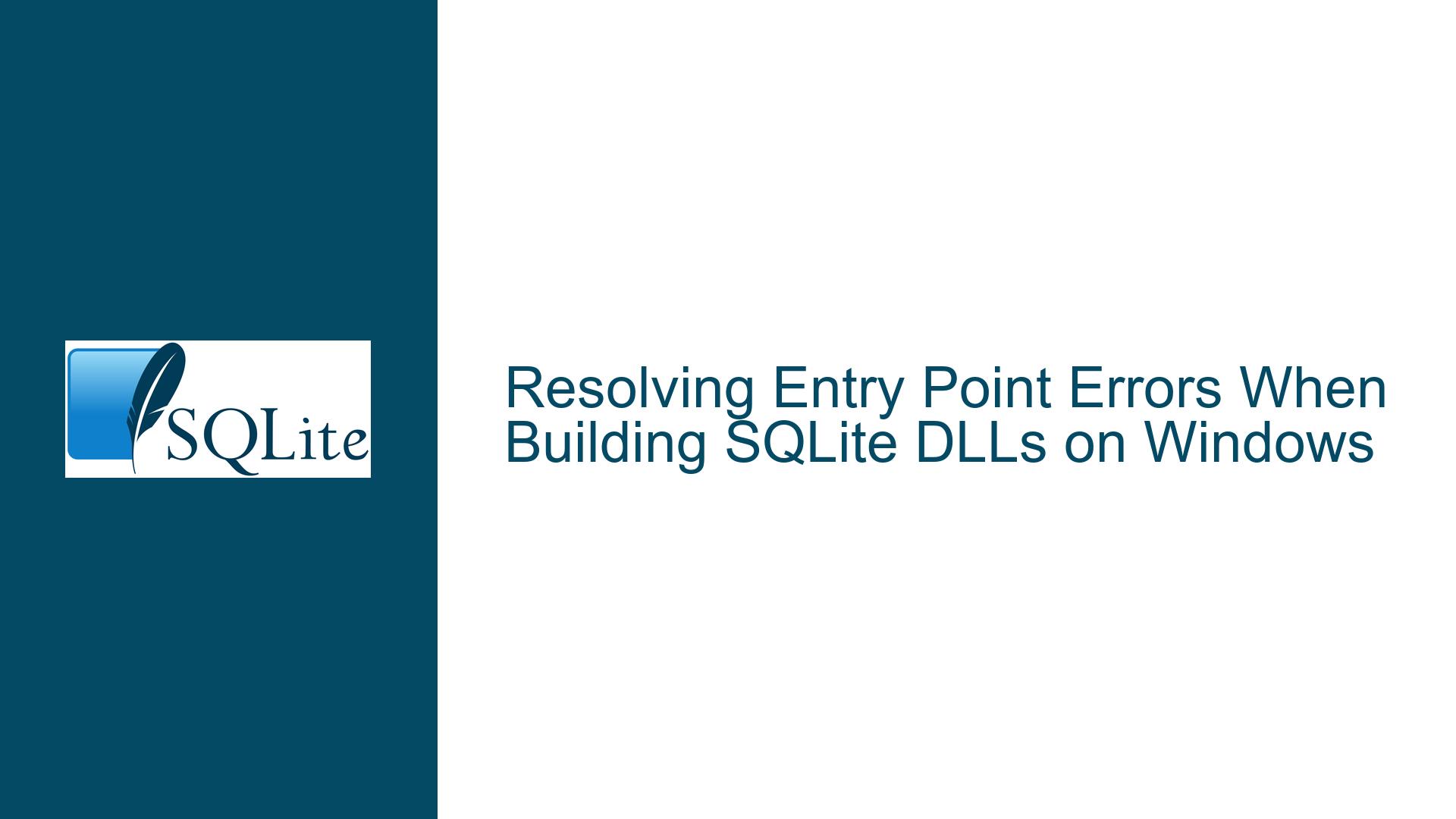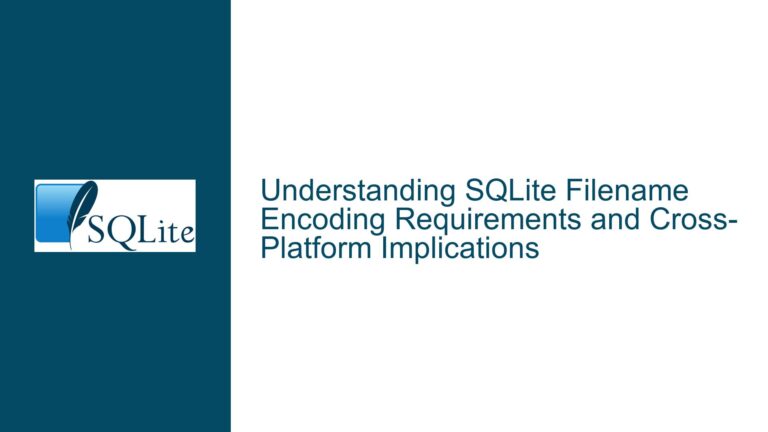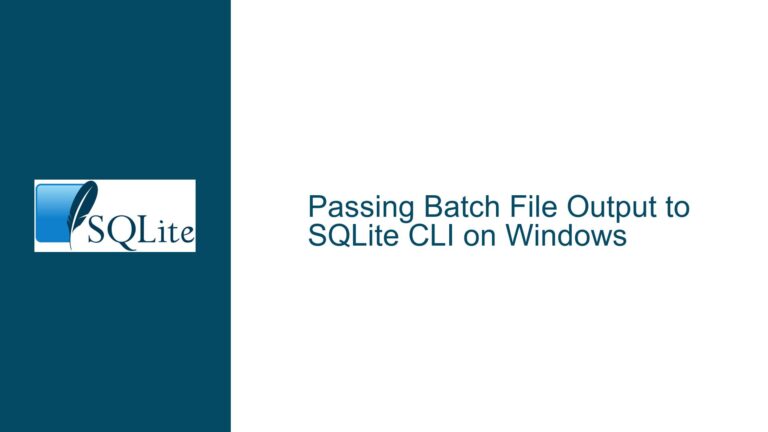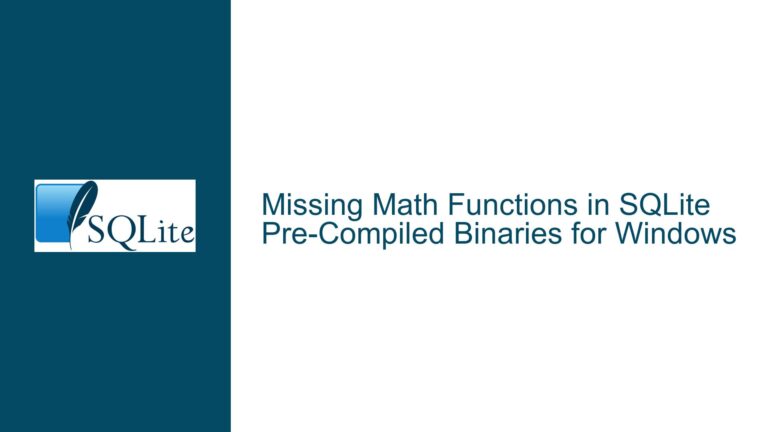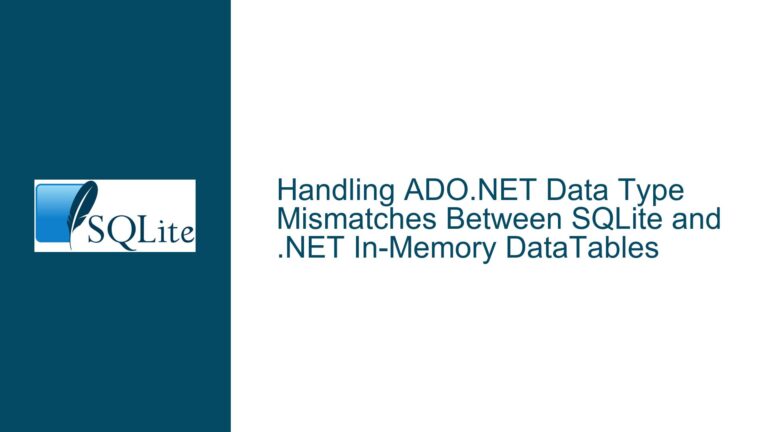Resolving Entry Point Errors When Building SQLite DLLs on Windows
Understanding Missing Entry Points in SQLite DLL Compilation
When compiling SQLite as a Windows Dynamic Link Library (DLL), developers often encounter "entry point not found" errors during runtime. These errors indicate that the DLL lacks properly exported symbols for its core functions, such as sqlite3_open or sqlite3_prepare_v2. The root cause lies in how the compiler and linker handle symbol visibility during the build process. Unlike Unix-like systems, Windows requires explicit directives to export functions from a DLL. Failure to enforce these directives results in a DLL that compiles without errors but cannot be used by applications expecting access to its public API. This issue is particularly common when compiling SQLite from the amalgamation source code without leveraging the official build scripts or when manually configuring the build pipeline.
The SQLite amalgamation (a single sqlite3.c file and its header) is designed for simplicity but does not include platform-specific export configurations. Developers building custom DLLs must therefore ensure that the compiler and linker are instructed to expose the necessary functions. The absence of a module-definition file (.def) or incorrect preprocessor macros during compilation are typical culprits. Furthermore, discrepancies between 32-bit (x86) and 64-bit (x64) builds can exacerbate the problem, especially when using older versions of Microsoft Visual Studio or misconfigured build environments.
Core Factors Leading to Missing DLL Exports
1. Omission of Symbol Export Directives in Compilation
SQLite’s public API functions are declared in the source code with the SQLITE_API macro. By default, this macro is empty, meaning no functions are explicitly marked for export. To create a functional DLL, developers must redefine SQLITE_API as __declspec(dllexport) during compilation. This instructs the Microsoft Visual C++ (MSVC) compiler to generate export tables for the linker. Without this definition, the resulting DLL will compile but lack the necessary metadata for external applications to resolve its functions.
2. Improper Use or Absence of Module-Definition Files
Module-definition files (.def) explicitly list the functions a DLL exports. The SQLite build system generates sqlite3.def automatically using a combination of dumpbin and a TCL script (.toolreplace.tcl) to parse the compiled library and extract exported symbols. Developers compiling manually often skip this step, either due to missing build dependencies (e.g., TCL not being installed) or incomplete replication of the official build process. Even minor deviations, such as omitting the /DEF:sqlite3.def flag during linking, will result in a DLL without exported entry points.
3. Incomplete Build Pipeline Replication
The official SQLite build process for Windows uses Makefile.msc, a Microsoft NMAKE-compatible makefile that automates critical steps: compiling the amalgamation with specific flags, generating the .def file, and linking the DLL with the correct parameters. Developers attempting to compile SQLite manually—for example, using ad-hoc cl commands—may overlook these steps. For instance, the linker must receive both the .def file and the /DLL flag to produce a valid DLL. Similarly, compiling without the /MT or /MD flags to specify the runtime library can lead to mismatches between the DLL and dependent applications.
Step-by-Step Fixes for Entry Point Resolution Failures
Step 1: Define SQLITE_API as __declspec(dllexport)
Modify the compiler invocation to include /DSQLITE_API=__declspec(dllexport). This ensures all API functions are marked for export. For example:
cl /LD -DSQLITE_API=__declspec(dllexport) sqlite3.c
The /LD flag tells cl to generate a DLL, while the -D flag defines the macro. Verify this by inspecting the generated sqlite3.lib with dumpbin /exports sqlite3.lib. Look for entries like sqlite3_open under the "Export Symbols" section.
Step 2: Integrate a Module-Definition File
If using the official SQLite build scripts, ensure TCL is installed and accessible in the PATH. Execute nmake -f Makefile.msc sqlite3.dll to automate .def file generation. For manual builds, create a sqlite3.def file with the following content:
EXPORTS
sqlite3_aggregate_context
sqlite3_aggregate_count
... (list all required functions)
A complete list can be extracted using:
dumpbin /exports sqlite3.lib | findstr "sqlite3_" > sqlite3.def
Then link with /DEF:sqlite3.def:
link /DLL /DEF:sqlite3.def /OUT:sqlite3.dll sqlite3.obj
Step 3: Validate Architecture and Dependency Consistency
Ensure the DLL’s architecture (x86/x64) matches the target application. Use dumpbin /headers sqlite3.dll to check the machine type (e.g., x64 or x86). Recompile with the /MACHINE:X64 or /MACHINE:X86 linker flags if mismatches are detected. Additionally, confirm that the C runtime library (CRT) used (e.g., /MT for static linking, /MD for dynamic) aligns with the application’s CRT configuration. Mismatches here can cause silent failures or missing entry points due to runtime incompatibilities.
Step 4: Leverage Preconfigured Build Scripts
Avoid manual compilation errors by using Makefile.msc from the SQLite source tree. This makefile handles symbol exportation, .def file generation, and architecture-specific flags. Execute:
nmake -f Makefile.msc SQLITE_OPTIONS="-DSQLITE_ENABLE_FTS5 -DSQLITE_ENABLE_JSON1" sqlite3.dll
to build a DLL with optional features. Customize SQLITE_OPTIONS as needed, but refrain from altering the core build logic unless necessary.
Step 5: Test the DLL in Isolation
After compilation, validate the DLL using a minimal test application:
#include <sqlite3.h>
#include <stdio.h>
int main() {
sqlite3 *db;
int rc = sqlite3_open(":memory:", &db);
printf("SQLite version: %s\n", sqlite3_libversion());
sqlite3_close(db);
return 0;
}
Compile and link against the new DLL:
cl test.c sqlite3.lib
If the test executable runs without errors, the DLL is correctly exported. If entry point errors persist, use Dependency Walker (depends.exe) or dumpbin to audit the DLL’s exports and identify missing functions.
By systematically addressing symbol exports, build script fidelity, and architectural consistency, developers can resolve "entry point not found" errors and produce fully functional SQLite DLLs for Windows. Adopting the official build process or rigorously replicating its steps in custom pipelines ensures reliability across both 32-bit and 64-bit environments.
